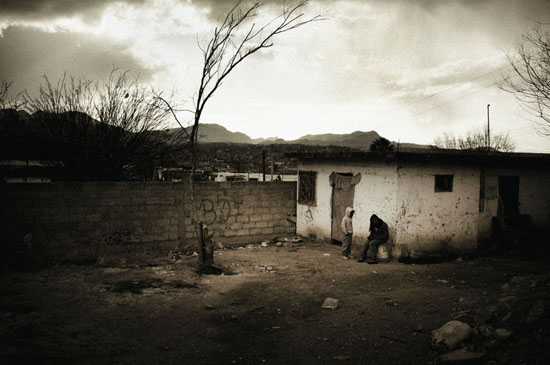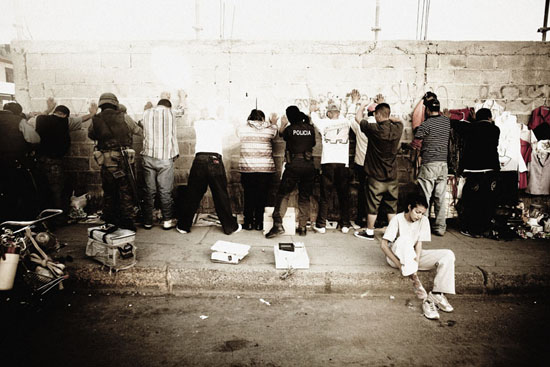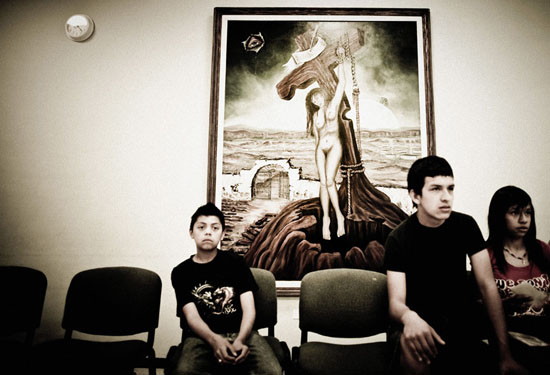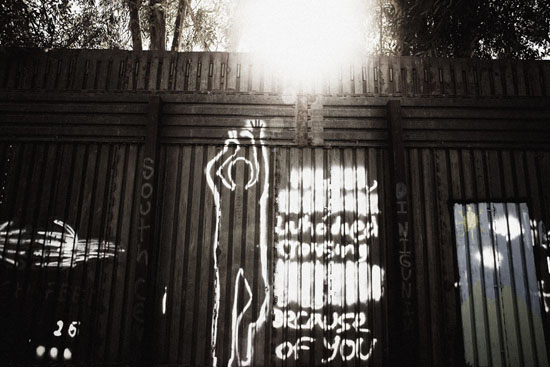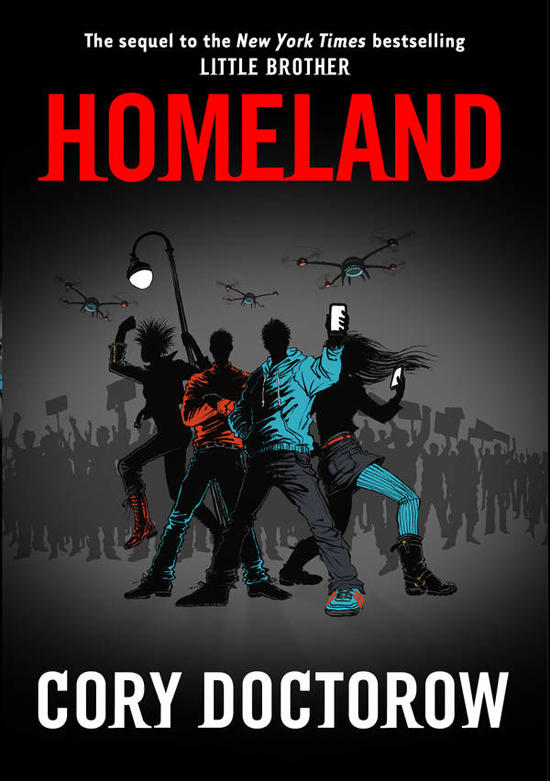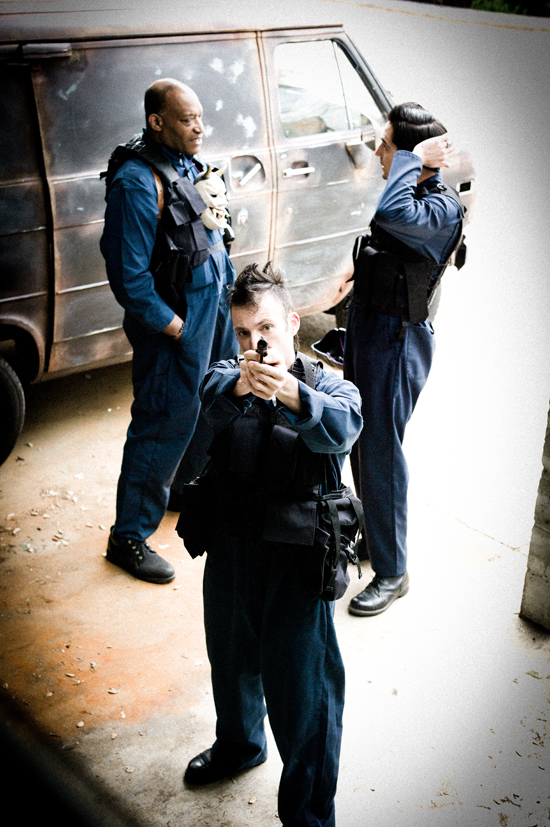
Anonymous Has Left The Building: An American Anon In Exile0
Posted In Activism,Blog,Favorites,Interviews,Politics
by Asher Wolf
A while back I decided to interview @AnonyOps. We chat regularly. As a result, we quickly generated a huge stack of material.
We worked together in a consultative process to trim back the content. The result is true to the nature of the conversation we’ve held over a number of months.
This interview is the first time anyone has interviewed @AnonyOps about his decision to become Anonymous, his fear of persecution, the talent brain-drain and his decision to leave the U.S.
@AnonyOps: I don’t want talk about what country I’m in. Just that I’ve left. We can start the interview now if you want…
@Asher_Wolf: Can you tell me about your background, so people can image you behind the mask?
@AnonyOps: I sit in my mother’s basement and I write code all day. Well, all of that’s true — except the part about my mother’s basement.
I’m not going to hand over identifying information.
In my free time? I sit and stew about state powers and mass surveillance of innocent people, attempts at censorship and general tyranny. These things put gas in my tank.
@Asher_Wolf: Tell me about becoming Anonymous?
@AnonyOps: I had a set of common beliefs in line with others in Anonymous – which, looking back is a bit funny to think about, mostly because we’re not unanimous.
@Asher_Wolf: Did you know what you were getting into when you took up with the Guy Fawkes mask of Anonymous?
@AnonyOps: I was certainly filled with idealism and yes, I was naive.
But, yeah, remembering back to December 2010 – when I saw what happened to WikiLeaks (with the Mastercard, Visa and PayPal financial blockade) I was completely outraged. I wasn’t very optimistic at the start. I had a vision of what I wanted to do, but I didn’t know if I would have any impact at all. I thought – I would probably just be seen as yet another idiot on Twitter.
@Asher_Wolf: You thought you were powerless?
@AnonyOps: Yes. But I was naive. A day or two after I joined Twitter, I live-tweeted a forum, the Personal Democracy Forum 2010.
When I started watching it being streamed online, and seeing what topics they covered – I knew I wanted to participate. So I tweeted, and after about a minute of tweeting at them, they mentioned me in their video feed
That was an interesting moment for me. It’s when I realized that this thing – this mask of Anonymous – could have power.
@Asher_Wolf: How did the public respond?
@AnonyOps: There was lots of retweeting going on immediately. It felt as if a light switch had been flicked on. I felt I had a platform with which to speak, possibly for the first time in my life. I broke my first 100 followers on Twitter that day.
[Note: @AnonyOps now has more than 200k followers]
It was amazing. Such a dinky number of Twitter followers in retrospect, but to have it happen so quickly was interesting.
Live-tweeting something being streamed live online is still my favorite Twitter experience. It’s a rush. It was a bigger rush than some of the hacking I did as a teenager.
And yes – I see it as hacking – hacking public dialog. Taking on the Anonymous character and costume was like hacking my way onto a panel discussion where I’d never have been invited to participate otherwise.
When they announced to the entire room and online conference forum: “Hey everyone! Anonymous is here!” and they were talking about me.
I thought “Now what? I have their attention! Shit, better think of something smart to say next.”
It drove home I really needed to have a message, a vision for what I wanted to do and say. I needed to hone and develop my purpose.
Within just over a year of becoming an Anon, I was invited to speak at Transmediale (a huge a Berlin-based festival exploring art, culture and technology) as a panelist via Skype – representing to some degree a face of Anonymous.
@Asher_Wolf: Did you worry about “not fitting in” with the rest of Anonymous, when you jumped in and became part of the “hive”?
@AnonyOps: Yes, I worried at first. I wasn’t sure I’d mesh well with the hive. I don’t consider myself a typical Anon. After time, I stopped caring about giving a shit about being “different”, and counted it a good trait.
@Asher_Wolf: Does it ever feel like you’re playing at being a superhero?
@AnonyOps: That’s exactly what it felt like – and it still does occasionally. I think Anonymous caught people’s eye. But I’m just a regular joe. Anyone can be an Anon. But doing it well… takes work.
@Asher_Wolf: Did you feel a sense of obligation, knowing the impact you can potentially have ?
@AnonyOps: Do I feel a sense of obligation: of course. But I’m not particularly involved as an activist in “meatspace.” I just care. I do pay attention to politics and I’m careful about what information I put out online, as I know it influences other activists. Giving a shit is half the battle, if not more.
@Asher_Wolf: Some political pundits have criticized Anonymous as anti-American at times?
@AnonyOps: I’m sure there are some anti-American elements. But sometimes it seems difficult to discern between those who are anti-American – and those who love America, but hate how the country is being run.
@Asher_Wolf: Do you still have hope for the U.S.?
@AnonyOps: Not necessarily hope for America as a concept, but hope – and perhaps faith – in the people. I don’t really consider myself nationalistic, but I care about my country, its constitution. I don’t hold the concept of country as more important than people or life itself. American exceptionalism is a curse upon the U.S.
@Asher_Wolf: How do you react to claims by media and government representatives hyping the potential of cyber terrorism, cyber war and Anonymous.
@AnonyOps: Cyber terrorism… it’s one of the things that made me think that perhaps the US wasn’t the place for me anymore. The US government is hungry for enemies, looking for any excuse to find that next danger to the public – “think of the children!!” I don’t want to be that enemy the US administration is looking for. For fuck’s sake – I was trying to fix America, not become public enemy Number One.
@Asher_Wolf: Did you fear the American government would prosecute you? That you would be jailed for hacking something or tweeting something?
@AnonyOps: Coupled with all the evidence about the FBI knowing about plots to kill leaders of Occupy and the violence inflicted by militarized police against peaceful war veterans protesting as part of the Occupy Movement? I didn’t think I’d be jailed for hacking anything, but for tweeting something, sure. I’ve seen it happen to friends. They were hit with amazingly flimsy “conspiracy” charges, or something they said triggered them to be raided – free speech, my ass.
@Asher_Wolf: Like Barrett Brown?
@AnonyOps: Yes, like Barrett. Granted, some of the things he said in video were pretty stupid, but I don’t believe he was planning on killing anyone. He’s looking at potentially landing in prison for 100 years for saying dumb things.
@Asher_Wolf: Anonymous has previously been described by a Fox News affiliate (as well as other commentators) as “domestic terrorists.” Did you ever, for a second, see yourself as a terrorist? And how did it feel to have media describe Anonymous, the movement you became one of many representatives by proxy, described as terrorists?
@AnonyOps: To be personally considered a terrorist was, for me, is the height of idiocy.
To love one’s country and to want to see it live up to the things it says it holds dear – just to be called a terrorist….it’s disheartening, eye-opening and really frustrating.
Sometimes I wonder if news organizations are following in the steps of “shock-jocks” – in that, I mean they’re simply stating things to get a rise out of people. Or that they’re just trolling us. Can they really be that stupid? It’s hard to tell sometimes…
@Asher_Wolf: How did you react to knowing you were being portrayed that way?
@AnonyOps: I just had to continue to fight on, knowing this sentiment isn’t in the majority. Or at least hope it isn’t. We have to fight harder against this stuff. Silence gives consent. You have to yell loudly at that kind of stupidity and not let journalists get away with it. Name and shame.
@Asher_Wolf: Did you feel a need to take special action to keep yourself and your family out of harm’s way since you began to publicly identify as Anonymous?
@AnonyOps: You hide, hope your online anonymity efforts have worked or you get the hell out of the country – which is what I did. I got the hell out.
I’ve known for quite some time that this is where things would end up. Anonymous has left the building, as it were. The idea of leaving occupied my life for about a year.
And being a refugee of sorts, it’s not all roses. I gave up so much; my home, family and friends.
But I’ve seen what my government does to outspoken people, to people who are “too effective” in their criticism.
Just look at Julian Assange, Bradley Manning, Thomas Drake, John Kiriakou, Andrew Alan Escher Auernheimer, Jeremy Hammond, Barrett Brown… people *are* being persecuted for trying to speak out against the regime.
I had to leave.
@Asher_Wolf: Did concern that you’d be charged with a crime relating to your involvement with Anonymous play into your decision to leave the U.S.?
@AnonyOps: Yes – mostly I feared they’d fake my involvement in something or try to entrap me, or hit me with some bullshit conspiracy charge.
I left for some of the same reasons Aaron Swartz “left.” I’m sick to death of where the US is going, about the impact it has on people’s lives. But exile was my choice of escape instead. I don’t have suicide in me and I didn’t want to end up in a jail cell.
But I’m so sick of dealing with the bullshit American “justice” system. Sick of seeing prosecutors throw the kitchen sink at people, hoping they’ll plead out so as to avoid, you know, actually going to trial and proving someone guilty. That’s not justice, it’s railroading. Kitchen sink justice is why I left.
I mean… they could still trap me, I’m sure, if they were so inclined, and I’m sure they would if i ever got *so good* at liberating information from their death grips. Perhaps then they might see fit to draw a box and put me in it. So I chose exile, instead
@Asher_Wolf: So this is essentially a form of political exile of sorts?
@AnonyOps: Political exile is better than being a political prisoner. I see how that’s worked out for others. Years in detention like Bradley Manning, Jeremy Hammond or holed up somewhere in Canada like Commander X.
@Asher_Wolf: Where did you decide to go ?
@AnonyOps: Just… away. Probably better not to name where I went. Just, somewhere safer. I think the idea was planted when I saw others leaving. Glen Greenwald left, and other talent has quietly slipped away from the U.S. for quite some time now.
There’s a brain drain, of political dissidents – America’s punishment for screwing with civil liberties.
With the NSA building massive domestic spying programs, I can’t blame anyone for wanting to leave: America – land of the surveilled, home of the logged.
@Asher_Wolf: What do you miss most since you left the US?
@AnonyOps: I miss… being able to hang out with friends and family. And I miss the really expensive health care! (Just kidding!)
@Asher_Wolf: Do you think you’ll ever return to the US?
@AnonyOps: Yes, I’m sure I’ll be coming back to the States. I just won’t be coming back with any electronic equipment.
But yeah, I’ve no illusions that I’m “in hiding” or out of view of the US government. However now if they want me, they have to expend quite a bit more resources to come get me, and have to deal with another government to do so.
@Asher_Wolf: Did you feel regret over leaving?
@AnonyOps: My only regret is leaving has become the choice that seems sanest right now. I regret… I regret that leaving seems like the best option right now. But it seems safer in some ways.
Of course… if the US government deems me an “enemy” or “enemy combatant”, they can easily drone-kill me now. I guess that’s a new danger that didn’t exist before. That’s harder for them to do in the states, but they’ve done it abroad
@Asher_Wolf: But you’re still an American citizen…?
@AnonyOps: The US government doesn’t seem to care about that pesky requirement. 16 year old Abdulrahman al-Awlaki was also a U.S. citizen when he was killed by U.S. drone bomb in Yemen.
We need to stop thinking that there is one rule of law for some and another for us. Extrajudicial killing – the US government is literally murdering people. There is no “due process.”
The US has lost the concept of due process. In the US intellectuals, technologists and activists are targeted for harassment at borders: their property is taken, they’re put in “holding” for a long time. There are countless examples of Occupy protesters being singled out because of their involvement in the movement.
But there are countries that have shown that bankers can, in fact, be put in jail and that presidents aren’t immune to the scrutiny of the people, and will be held accountable. I want to live in places where justice isn’t just lip-service.
@Asher_Wolf: Do you worry about the message your decision to leave gives to other activists in the U.S.
@AnonyOps: No, not at all. I mean…. it may give them the message to leave as well – but that doesn’t bother me. Maybe it’s a message activists need to hear and consider carefully at this point in U.S. history: from my perspective, it’s time to either leave or hide.
Journalist, information-activist, and commentator, Asher Wolf has been described as a “twitter journalist” by the Sydney Morning Herald, and “one of the key activists across the world in coordinating news and information relating to breaking the old information hegemony”, by Swedish Pirate Party founder Rick Falkvinge.
A prolific user of Twitter, Asher is a contributor to the New Matilda and a member of the Australian MEAA journalist’s union. She’s also the founder of the CryptoParty movement, with events promoting personal privacy and cryptography in over 60 locations around the world.
Boho feral, feminist and fascinated by the implications of all things machine and geek, Asher Wolf is tinkering at the crossroads of government transparency, personal privacy, journalism, social media, technology and activism.
For more from Ahser read her blog and follow her on Twitter.




